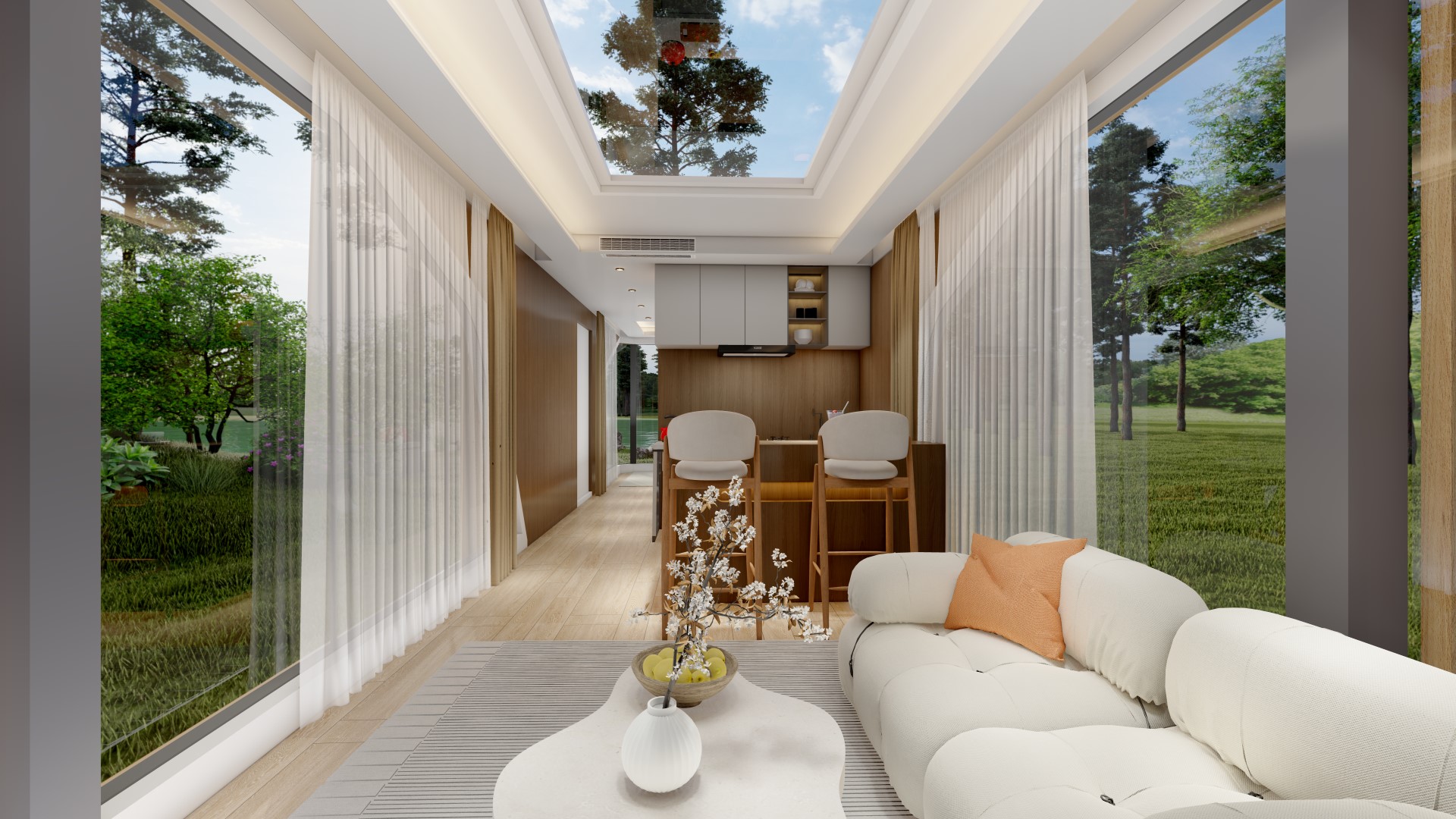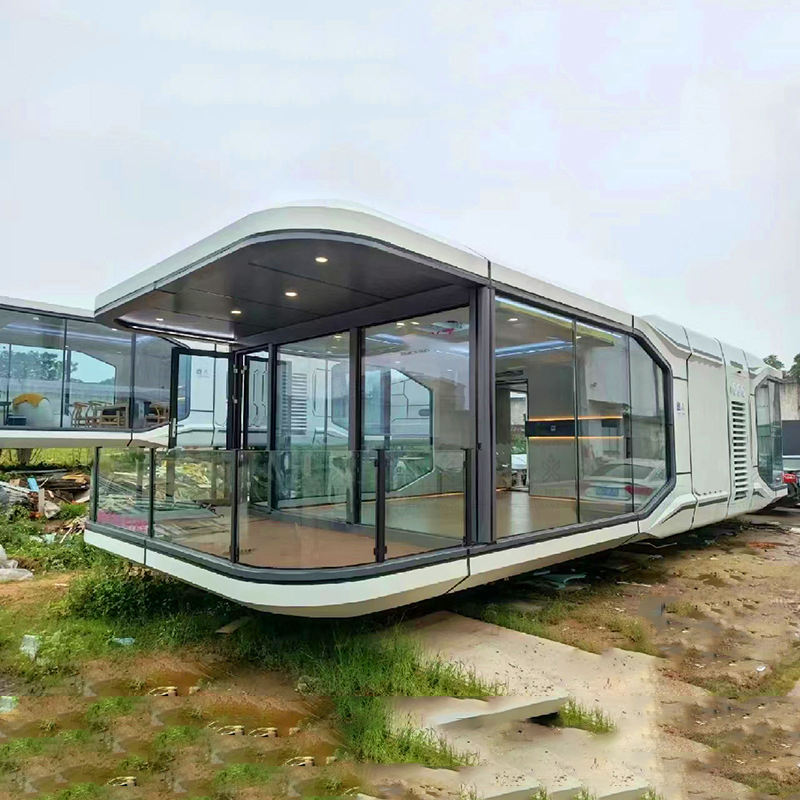Why Modular Homes Are the Future of Sustainable Living
Modular homes are progressively identified as a critical option for sustainable living, using a mix of effectiveness, cost-effectiveness, and ecological benefits. The versatility of modular styles allows for the combination of sustainable technologies and materials customized to specific requirements.
Ecological Benefits of Modular Homes
The ecological advantages of modular homes represent a substantial step towards lasting living. These homes are constructed in controlled factory setups, which significantly decreases waste generated during the building process. By enhancing materials and reducing excess, modular building and construction adds to a much more reliable use sources contrasted to standard building approaches.
Additionally, modular homes are often designed with energy efficiency in mind. Numerous incorporate sophisticated insulation methods, energy-efficient home windows, and lasting materials, adding to lower power consumption. This can result in decreased greenhouse gas emissions over the life-span of the home, enhancing its overall environmental profile.
The capability to transportation and put together modular components on-site also decreases the carbon footprint linked with building and construction logistics. Many modular homes are constructed to be adaptable and easily upgradeable, permitting house owners to execute sustainable innovations, such as solar panels and energy-efficient heating systems, over time.
Inevitably, the ecological advantages of modular homes not only promote lasting living yet likewise urge a more accountable method to housing growth, straightening with global efforts to deal with climate change and maintain natural deposits for future generations.
Cost-Effectiveness and Affordability
Building a home usually stands for among the largest economic investments individuals make in their life time, and modular homes offer an engaging service for those seeking cost-effectiveness and cost. One of the key advantages of modular homes is their lower construction expenses compared to standard site-built homes. The streamlined production process permits considerable financial savings on labor and products, which translates to reduce prices for consumers.
Furthermore, modular homes usually have shorter construction timelines. This not just minimizes expenditures associated with financing and insurance policy however also alleviates the risks associated with rising cost of living and changing market problems. Several customers discover that modular homes can be personalized to fit their budgets without giving up high quality or design.
In addition, power efficiency is commonly constructed right into the layout of modular homes, causing decreased energy expenses with time. Many manufacturers prioritize sustainable materials and methods, additionally improving the long-lasting financial practicality of these homes. Overall, the mix of preliminary expense financial savings, quick building and construction, and continuous power efficiency makes modular homes an appealing alternative for those seeking to buy lasting living without breaking the financial institution.
Efficiency in Construction
Modular homes not just offer economic benefits however likewise succeed in building effectiveness. The modular building process involves the simultaneous building and construction of components in a manufacturing facility setting while website preparation happens simultaneously. This identical method significantly reduces the total timeline from fertilization to conclusion, commonly reducing construction time by up to half compared to conventional approaches.
Furthermore, factory-controlled environments improve quality control. By utilizing precision production methods, modular homes are developed to specific requirements, minimizing waste and mistakes. This uniformity not just brings about a higher quality product yet additionally adds to sustainable techniques by reducing product waste throughout building and construction.
In addition, making use of contemporary innovation and automation in the production procedure allows for quicker assembly and reduced labor costs. Once the modules are transferred to the website, they can be efficiently assembled, further quickening the timeline. This streamlined process is not just advantageous for building contractors however also reduces disruptions to the surrounding atmosphere during building and construction.
Personalization and Design Adaptability
An outstanding variety of customization choices differentiates modular homes, permitting property owners to customize their space to meet particular needs and preferences. This design flexibility is a trademark of modular building and construction, allowing customers to choose whatever from flooring strategies and space formats to coatings and components. Unlike standard homes, modular styles assist in a joint method where building contractors and designers function carefully with property owners, ensuring that each aspect lines up with individual lifestyles and visual needs.
Furthermore, modular homes can be quickly reconfigured or expanded, accommodating transforming family members characteristics or progressing individual tastes. This flexibility not just improves the home's capability however likewise contributes to lasting sustainability, as home owners can change their rooms instead of look for new housing services.

Future Fads in Sustainable Real Estate
Arising fads in lasting real estate are improving the landscape of household building, highlighting green techniques and innovative modern technologies. One considerable trend is the combination of smart home modern technology, which enhances energy performance through automated systems that monitor and optimize energy usage. This not only reduces utility prices but likewise contributes to a reduced carbon impact.
In addition, making use of sustainable products is ending up being significantly common. Contractors are going with recycled, in your area sourced, or swiftly renewable materials, which reduce ecological influence and support regional economic situations. Modular homes are gaining appeal for their lowered waste throughout building and construction and their flexibility to numerous surfaces and environments.
One more pattern is the consolidation of eco-friendly roofing systems and living walls, which enhance air top quality and provide all-natural insulation. These attributes additionally advertise biodiversity in metropolitan locations.
Verdict
In conclusion, modular homes arise as an essential solution for lasting living, using substantial environmental advantages with reduced waste and energy efficiency. As fads in lasting housing advance, modular homes are poised to play a crucial function in advertising click here for more info environment-friendly living methods for future generations.
Structure a home typically stands for one of the largest monetary investments individuals make in their life time, and modular homes provide an engaging solution for those looking for cost-effectiveness and cost. One of the main benefits of modular homes is their lower building prices compared to standard site-built homes. Overall, the mix of preliminary price savings, fast building and construction, and ongoing energy performance makes modular homes an attractive choice for those looking to spend in lasting living without breaking the bank.
Ultimately, the modification and design versatility used by modular homes ensure that they are not simply frameworks, yet personalized havens that show the one-of-a-kind identities of their residents while promoting sustainable living methods.
